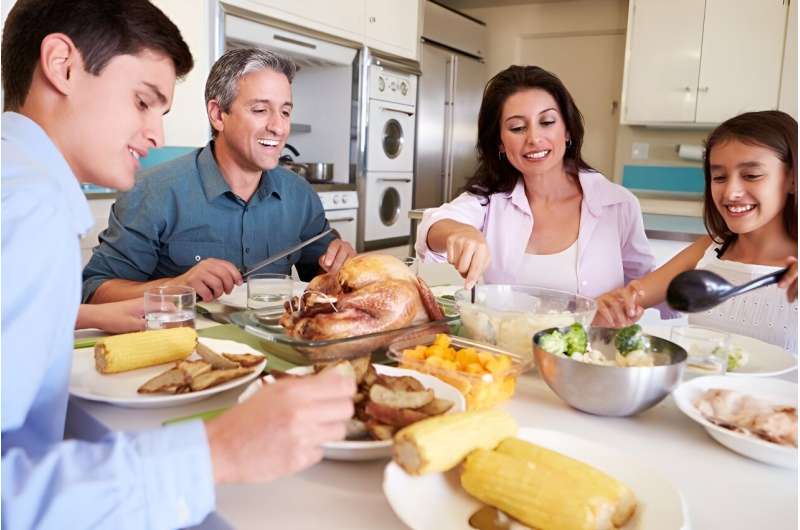
The Thanksgiving table is typically loaded down with turkey, stuffing, gravy, mashed potatoes and all kinds of pie, but nutritionists say kids should also be encouraged to eat fresh fruit and vegetables during the holiday meal.
Precious few children eat enough fruits and vegetables the rest of the year, so the Academy of Nutrition and Dietetics encourages families to prepare Thanksgiving meals that incorporate cranberries, apples, pumpkins and green beans.
“Simplicity is key when it comes to feeding children, especially during holidays when meals are more formal and the dishes are more dramatic,” said registered dietitian and nutritionist Amy Reed, an academy spokesperson from Cincinnati Children’s Hospital.
“Instead of serving children a vegetable casserole, set out a tray of raw vegetables and fruits because many kids like things to be plain,” she suggested in an academy news release. “Offering different dips on the side allows them to customize their food and may encourage them to try something new.”
But don’t be surprised if they still balk a bit.
“My family loves our Thanksgiving staples of turkey and gravy, green beans, cranberry sauce and sweet potato, but we can be flexible for our young guests who might not feel the same way about our traditional feast,” said registered dietitian nutritionist Jessica Sylvester, an academy spokesperson from Boca Raton, Fla.
Sylvester offered these tips for children who might not be fans of traditional Thanksgiving fare:
- Feed your kids a healthy snack before dinner so they aren’t “hangry,” and bring some healthful snacks such as fruit and yogurt, just in case
- Introduce a new food on the same plate as a familiar food. Seeing familiar food nearby will make them more willing to try new foods
- Add only a “dime-sized” portion of any new food on their plate, and don’t put more than two new foods on the same plate, to avoid overwhelming them
- Dress up the new foods by pairing them with new utensils in fun or unique shapes or colors. They’ll want to test them out with the new foods
- Lead by example. If you try a new food, your child might be encouraged to do the same
“Introduce new foods all year long so your children become familiar with trying new things,” Sylvester added. “If they don’t like a particular food, don’t worry and don’t threaten to punish them by withholding dessert or anything else. You never want your child to associate food with punishment.”
“Encourage them to eat what they like and introduce the new food another day,” she added. “It can take several attempts before a child will respond favorably to a new food.”
If your child has any food allergies, you will have additional dining challenges.
“Thanksgiving is a time to create memories, not stress over the dinner table,” Reed said. “Familiarize yourself with who has what food allergy and do your best to tweak your dishes to suit their needs, or make a dish especially for them.”
Reed offers the following tips to navigate the holidays with a food allergy:
- Alert your host of your child’s food allergies
- Inform other guests of your child’s food allergies so they do not offer them foods that might result in an allergic reaction
- Offer to bring some dishes that are safe for your child to eat
- Desserts often contain major food allergens, so offer to bring a dessert that is safe for your child to enjoy
Copyright © 2023 HealthDay. All rights reserved.
Source: Read Full Article
